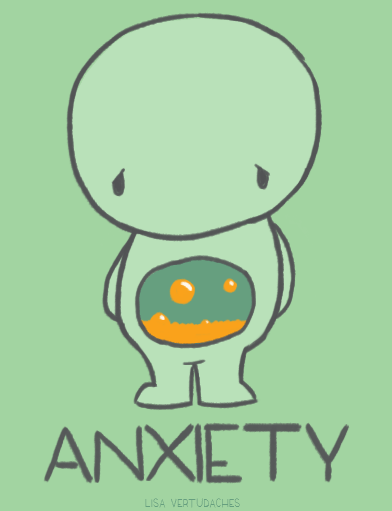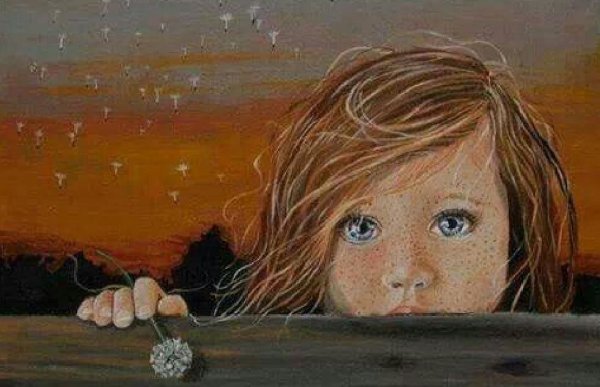It's Hard to Be A Child in a World Full of Tired Adults

There’s no such thing as a difficult child. What’s difficult is being a child in a world full of tired, busy, impatient, hurrying adults. There are parents, teachers, and caregivers who often forget about one of the most important commitments involved in raising children: providing them with adventure.
This problem is so real that we show concern when a child is simply restless, noisy, happy, emotional, colorful. Some parents and professionals don’t want children, they want flower pots.
It’s normal for children to run around, fly, shout, experiment, and turn their environment into a theme park. It’s normal for children, at least at an early age, to be just the way they are, and not how adults want them to be.
But for this to happen, two fundamental things must be understood:
- Movement is not a sickness. We want a self-control that neither nature nor society encourages.
- We’re doing kids a favor when we let them get bored and avoid overstimulation.

Why are we medicating our children?
Even though it’s become trendy in the fields of health and education, the existence of attention deficit hyperactivity disorder (ADHD) is rather questionable, at least the way it’s conceived. It’s currently used as a catch-all term where diverse cases pile up, ranging from neurological problems, to behavioral problems, to a lack of resources, to an inability to manage oneself in one’s environment.
The statistics are overwhelming. According to data from the Diagnostic and Statistical Manual of Mental Disorders IV-TR (DSM-IV-TR), the prevalence of ADHD in children is 3 to 7 cases per 100 children. What’s worrisome is that the underlying biological hypothesis is no more than a hypothesis, which they attempt to corroborate using trial and error, with reasoning like “it seems like this happens because…”
Meanwhile, we’re overmedicalizing our children because they display disturbing behaviors, because they don’t pay attention, and because they seem to not think before performing a task. This is a delicate subject, so it’s necessary to be especially cautious and responsible by consulting good child psychiatrists and psychologists.
At this point, we should point out that there is no clinical or psychological exam that objectively determines the existence of ADHD. Indeed, these exams are done based on impressions and performance on different tests. The diagnosis is based on the time the tests are performed and the subjective impression made by the tests. Unsettling, isn’t it?
Let’s not forget that children are being medicated with amphetamines, antipsychotics, and anxiolytics, which can have disastrous consequences on their neurological development. We don’t know what the repercussions of these medications will be, let alone the excessive use of them. These medications only reduce the symptoms, but they don’t reverse the “disorder” in any way.

It seems savage, so why does it continue to happen? One of the reasons is likely economic, seeing as the pharmaceutical industry brings in billions of dollars thanks to the pharmacological treatment of children. And there’s also the philosophy that “it’s better than nothing.” The self-deceit of the “happy pill” is a common factor among many illnesses.
Setting aside labels and diagnoses that are questionable, at least in the proportion that they’re given, we should slam on the brakes and realize that it’s actually us adults who are sick, and that the main symptom is the poor management of educational politics and schools.
More and more specialists are becoming aware of this fact, and are trying to stop parents and professionals who feel the need to blame ADHD for problems that often have to do more with the environment and a lack of opportunities for children to unleash their abilities.
As stated by Marino Pérez Álvarez, specialist in clinical psychology and professor of Psychopathology and Intervention Techniques at the University of Oviedo in Spain, ADHD is nothing more than a label for children’s problematic behaviors that have no solid scientific or neurological basis, contrary to how they tend to be presented. It’s an unfortunate label that encompasses bothersome, yet normal, problems.

“It does not exist. ADHD is a diagnosis that has no clinical weight, and the medication isn’t treating [our children], it’s drugging [them],” says Marino. The idea has spread that neurochemical imbalances cause various problems, but it’s not certain whether this is a cause or a consequence. In other words, neurochemical imbalances can also result from one’s relationship with the environment.
The appropriate question would be: is ADHD science or ideology? It’s important to be critical and take a look at the world, which promotes cerebrocentrism and seeks physical causes for everything without stopping to think about what’s a cause and what’s a consequence. Maybe we should look at how we’re building society and what scientific evidence there is.
Starting from there, we should ask ourselves what are the needs and strengths of each child and adult who are likely to be diagnosed. Taking an individual approach will result in better health and well-being, both for children and for society in general. So, the first thing we have to do is self-criticize.
There’s no such thing as a difficult child. What’s difficult is being a child in a world full of tired, busy, impatient, hurrying adults. There are parents, teachers, and caregivers who often forget about one of the most important commitments involved in raising children: providing them with adventure.
This problem is so real that we show concern when a child is simply restless, noisy, happy, emotional, colorful. Some parents and professionals don’t want children, they want flower pots.
It’s normal for children to run around, fly, shout, experiment, and turn their environment into a theme park. It’s normal for children, at least at an early age, to be just the way they are, and not how adults want them to be.
But for this to happen, two fundamental things must be understood:
- Movement is not a sickness. We want a self-control that neither nature nor society encourages.
- We’re doing kids a favor when we let them get bored and avoid overstimulation.

Why are we medicating our children?
Even though it’s become trendy in the fields of health and education, the existence of attention deficit hyperactivity disorder (ADHD) is rather questionable, at least the way it’s conceived. It’s currently used as a catch-all term where diverse cases pile up, ranging from neurological problems, to behavioral problems, to a lack of resources, to an inability to manage oneself in one’s environment.
The statistics are overwhelming. According to data from the Diagnostic and Statistical Manual of Mental Disorders IV-TR (DSM-IV-TR), the prevalence of ADHD in children is 3 to 7 cases per 100 children. What’s worrisome is that the underlying biological hypothesis is no more than a hypothesis, which they attempt to corroborate using trial and error, with reasoning like “it seems like this happens because…”
Meanwhile, we’re overmedicalizing our children because they display disturbing behaviors, because they don’t pay attention, and because they seem to not think before performing a task. This is a delicate subject, so it’s necessary to be especially cautious and responsible by consulting good child psychiatrists and psychologists.
At this point, we should point out that there is no clinical or psychological exam that objectively determines the existence of ADHD. Indeed, these exams are done based on impressions and performance on different tests. The diagnosis is based on the time the tests are performed and the subjective impression made by the tests. Unsettling, isn’t it?
Let’s not forget that children are being medicated with amphetamines, antipsychotics, and anxiolytics, which can have disastrous consequences on their neurological development. We don’t know what the repercussions of these medications will be, let alone the excessive use of them. These medications only reduce the symptoms, but they don’t reverse the “disorder” in any way.

It seems savage, so why does it continue to happen? One of the reasons is likely economic, seeing as the pharmaceutical industry brings in billions of dollars thanks to the pharmacological treatment of children. And there’s also the philosophy that “it’s better than nothing.” The self-deceit of the “happy pill” is a common factor among many illnesses.
Setting aside labels and diagnoses that are questionable, at least in the proportion that they’re given, we should slam on the brakes and realize that it’s actually us adults who are sick, and that the main symptom is the poor management of educational politics and schools.
More and more specialists are becoming aware of this fact, and are trying to stop parents and professionals who feel the need to blame ADHD for problems that often have to do more with the environment and a lack of opportunities for children to unleash their abilities.
As stated by Marino Pérez Álvarez, specialist in clinical psychology and professor of Psychopathology and Intervention Techniques at the University of Oviedo in Spain, ADHD is nothing more than a label for children’s problematic behaviors that have no solid scientific or neurological basis, contrary to how they tend to be presented. It’s an unfortunate label that encompasses bothersome, yet normal, problems.

“It does not exist. ADHD is a diagnosis that has no clinical weight, and the medication isn’t treating [our children], it’s drugging [them],” says Marino. The idea has spread that neurochemical imbalances cause various problems, but it’s not certain whether this is a cause or a consequence. In other words, neurochemical imbalances can also result from one’s relationship with the environment.
The appropriate question would be: is ADHD science or ideology? It’s important to be critical and take a look at the world, which promotes cerebrocentrism and seeks physical causes for everything without stopping to think about what’s a cause and what’s a consequence. Maybe we should look at how we’re building society and what scientific evidence there is.
Starting from there, we should ask ourselves what are the needs and strengths of each child and adult who are likely to be diagnosed. Taking an individual approach will result in better health and well-being, both for children and for society in general. So, the first thing we have to do is self-criticize.
This text is provided for informational purposes only and does not replace consultation with a professional. If in doubt, consult your specialist.







